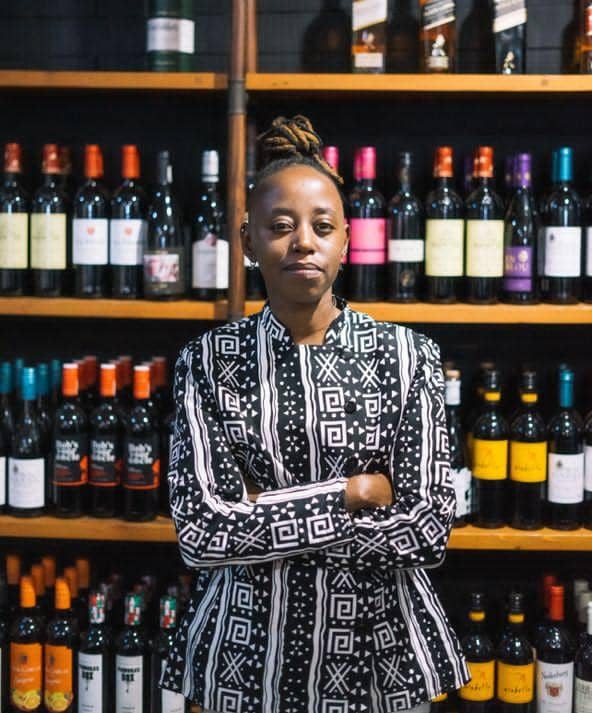KINGSTONE ZIMUNYA
Celebrity chef Nicola Kagoro, popularly known as Chef Cola, will be representing Zimbabwe and Africa at large at this year's COP28 Dubai. She will be speaking at a session titled 'Cities Leading The Way On Sustainable Food and Climate' to be held on 6 December 2023.
 |
| Nicola 'Chef Cola' Kagoro |
The role of cities in food systems is crucial. Cities consume 70% of total food production and can demonstrate the potential and power of food systems transformation to improve people's lives, prosperity, and planetary health.
Speaking to ZimSphere, Chef Cola felt honoured to have been invited. She saw the first-time invite at COP28 as validation for the work she's been doing to promote a sustainable vegan lifestyle across the world. "It was an honor to be invited to have a voice at such a powerful table. It makes me feel validated that my work is important to not just Zimbabwe but the world. This is my first time being invited," she said.
She will use her experience and expertise to highlight the innovative sustainable solutions underway in the world’s cities, demonstrate how local governments and partners can support inclusive, intersectoral approaches to climate and food system resilience, as well as the need for broader collaboration amongst all stakeholders involved.
"I would like COP28 to see that Africa is a solution to the global climate problem," adds Kagoro.
She believes Africa's historical role as a source of raw materials puts it in a perfect position to lead the change we all seek to curtail climate change. She said, "Africa has always been the hub for resources for the world to utilize. We have the ability to contribute positively to climate change by creating smart cities."
She also spoke how the vegan lifestyle can bring dynamic change to ecosystems around the world due to comparatively less CO2 emissions than the carnivorous lifestyle. "The vegan lifestyle accounts for 75 percent less in greenhouse gas emissions than those who eat more than 3.5 KG of meat a day. If this is not a clear solution for a global problem I can not see a better way forward," Kagoro explained.
She implored developed economies to find better ways to deal with their waste, and not use Africa as a dumpsite. "There has been research that first world nations are using Africa as dumping sites. First world nations should keep their trash and find first world solutions on how to get rid of their own waste," declared Kagoro.
She called on African leaders to campaign for the preservation of their land from dumping, in collaboration with international climate justice lobbyists. "African governments should in collaborating with NGOs create global campaigns to make people aware of this and find ways to stop it," she concluded.
The United Nations' annual conference on climate change started on 28 November and concludes on December 12, and is being held in Dubai's Expo City. In the three decades since the Rio Summit and the launch of the United Nations Framework Convention on Climate Change (UNFCCC), the Conference of the Parties to the Convention (COP) has convened member countries every year to determine ambition and responsibilities, and identify and assess climate measures.
The 21st session of the COP (COP21) led to the Paris Agreement, which mobilized global collective action to limit the global temperature increase to 1.5C above pre-industrial levels by 2100, and to act to adapt to the already existing effects of climate change.
The COP28 thematic program is designed to unite a diverse range of stakeholders - all levels of governments, youth, business and investors, civil society, frontline communities, indigenous peoples, and others - around specific solutions that must be scaled up this decade to limit warming to 1.5 degrees, build resilience, and mobilize finance at scale.
Globally, the world has experienced its hottest summer on record, and natural disasters continue to ravage infrastructure and take lives across the world. Climate change continues to impact people everyday, particularly the climate-vulnerable in Africa, which bears the brunt of climate change although it contributes the least to climate change.
With climate-related disasters recorded worldwide, COP28 will have the first ever Global Stocktake—a comprehensive assessment of the progress made since the Paris Agreement.
The GST runs for two consecutive years, and us done every five year window. The first one took place at COP26, and concludes at COP28.
As per the GST report released in October, the world is far behind on the climate goals set out in the Paris Agreement.
The objective of the GST will this be; looking at where the world stands on climate action and support, identifying the gaps, and working together to agree on solutions pathways to 2030 and beyond.
It is everyone's hope that parties at COP28 will come up with a roadmap to accelerate climate action.
One thing's for sure, Zimbabwe will be well-represented by our very own Chef Cola.




.jpg)




.jpg)









0 Comments